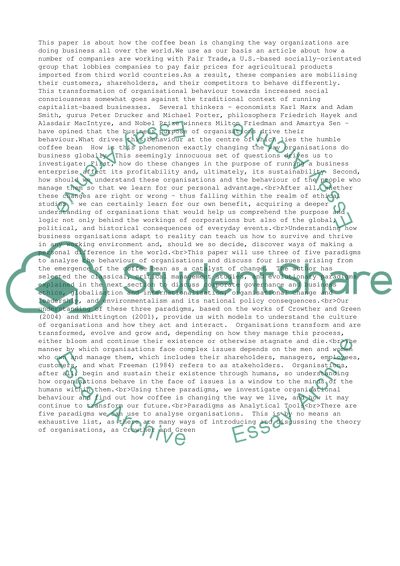Cite this document
(“Coffee and ethical globalisation Essay Example | Topics and Well Written Essays - 3750 words”, n.d.)
Coffee and ethical globalisation Essay Example | Topics and Well Written Essays - 3750 words. Retrieved from https://studentshare.org/business/1522248-coffee-and-ethical-globalisation
Coffee and ethical globalisation Essay Example | Topics and Well Written Essays - 3750 words. Retrieved from https://studentshare.org/business/1522248-coffee-and-ethical-globalisation
(Coffee and Ethical Globalisation Essay Example | Topics and Well Written Essays - 3750 Words)
Coffee and Ethical Globalisation Essay Example | Topics and Well Written Essays - 3750 Words. https://studentshare.org/business/1522248-coffee-and-ethical-globalisation.
Coffee and Ethical Globalisation Essay Example | Topics and Well Written Essays - 3750 Words. https://studentshare.org/business/1522248-coffee-and-ethical-globalisation.
“Coffee and Ethical Globalisation Essay Example | Topics and Well Written Essays - 3750 Words”, n.d. https://studentshare.org/business/1522248-coffee-and-ethical-globalisation.


